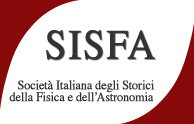Speaker
Description
In a world where the second quantum revolution drives the study of physics orienting much research toward technological developments, physics courses often focus more on the applied aspects of Quantum Mechanics than on the epistemological ones. This technological shift of goals is quite widespread, and certainly not limited to Quantum Mechanics alone. Indeed, academic proposals to transform courses of Mathematical Analysis into Calculus, to reduce the credits for Analytical Mechanics, or to diminish or abolish courses on Relativity due to their limited practical applications are not uncommon. In many countries, one can even pursue a doctorate without a Master’s degree… This trend results in a widespread lack of cultural and historical awareness among students and young graduates in physics. This lack not only hinders a deeper and more meaningful understanding of Quantum Mechanics itself but also provides an inconsistent epistemological framework for physics in general, risking of giving an incorrect image of the nature of science. This presentation will provide elements for discussion on the importance of contextualizing Quantum Mechanics within its cultural and historical environment as an emblematic example of a process aimed at cultivating physicists who are not only experts in a narrow field of research but also aware of the importance of a broader cultural context (at least to manage changes and innovations). In particular, we will discuss some examples of the initiatives by the physics education research group of the University of Milan aimed at fostering a cultural and historical understanding of QM.

